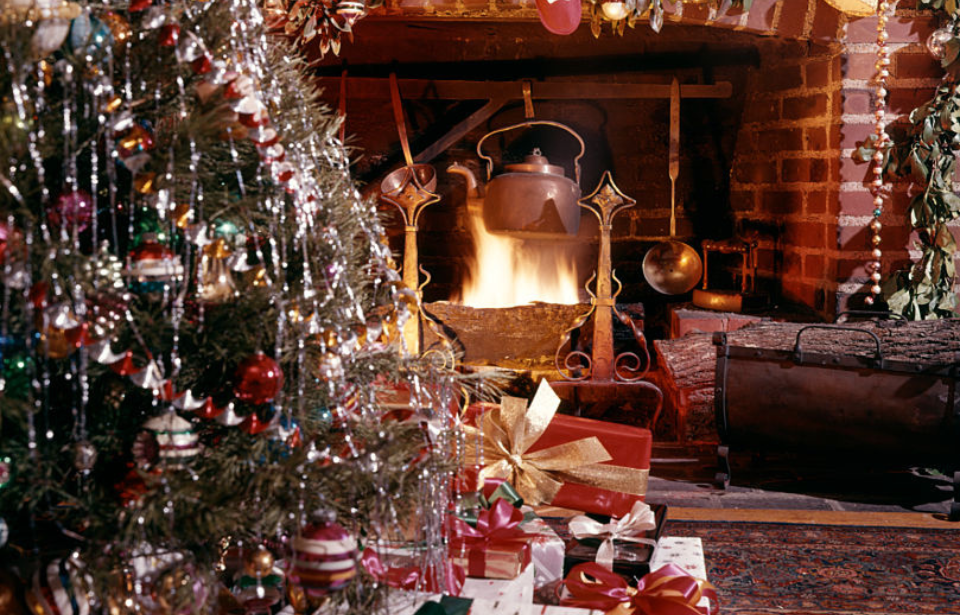Christmas constitutes one of the most important holidays in the Christian world. The date, which symbolizes the birth of Jesus, is celebrated globally and has been recognized as such since the early Middle Ages. Although primarily a religious holiday, over time it’s become more of an occasion for family gatherings, exchanging presents and putting up colorful decorations.
Celebrating Christmas in the post-war era
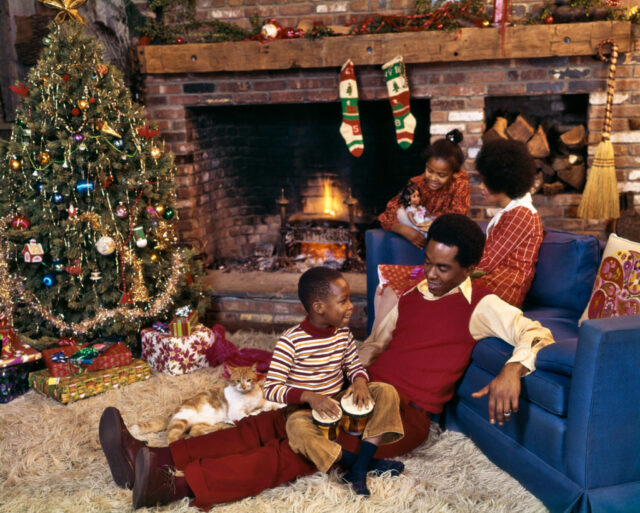
In the United States, this image of Christmas was created in the years following the Second World War. The period of prosperity in the 1950s led to the mass production of products related to the holiday, such as ornaments and Christmas trees. The post-war period also introduced several artificial options to substitute bringing a live tree indoors, using new materials, such as aluminum and PVC plastic, which came in a range of colors.
Artificial trees were in the spotlight in the late-1950s, for they fit nicely with the streamlined home decor of the emerging Space Age style. Toppers and stands also became increasingly popular, with a variety of them on the market. The most popular was the lit-from-within style, which provided additional lighting to the already shining mixture of lights and reflective ball ornaments.
It all added up to the merry and joyful image of Christmas as a family holiday, which became increasingly popular as a consumer holiday, as well. Malls were full for the shopping season, as people hurried to buy each other presents and brought their children to meet the spirit of Christmas himself, Santa Claus. Other accessories, such as figurines and stockings, became must-haves.
With winter ornaments, reindeer, elves and Santa Claus costumes everywhere, one couldn’t escape the notion that celebration was in the air. Homes all over the US were caught in this over-the-top decorating craze that swept the nation and formed one of the most iconic holidays in recent history that continues to be the most joyful time of the year.
Opening presents with the family
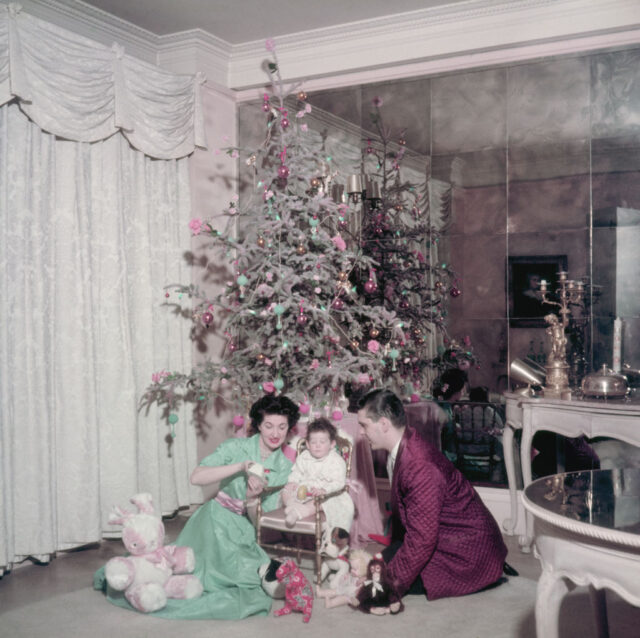
One of the most popular ways to decorate a Christmas tree in the 1960s was to cover it in fake snow, to make it look as though the season’s wintery weather had come indoors, just without the blustery cold! When paired with colorful baubles, the result was an incredibly beautiful (and festive) decoration!
Covering the Christmas tree in tinsel
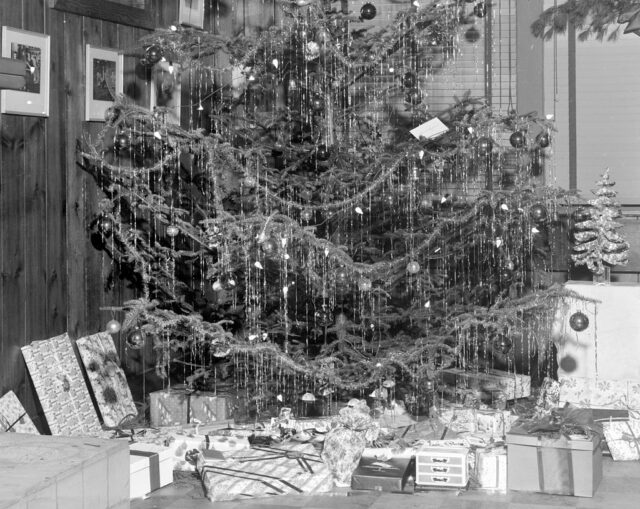
Everyone loves the look of individual strands of silvery tinsel on the tree, but very few actually like cleaning it up once Christmas is over. That doesn’t stop most from using it as decoration, as seen in this vintage shot!
A bountiful Christmas
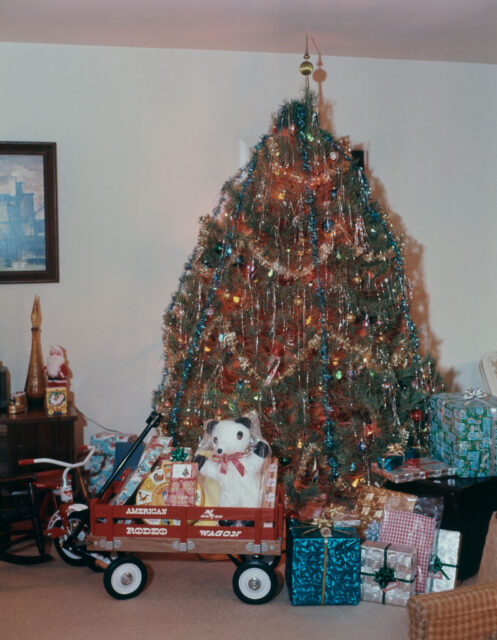
It’s not Christmas without presents under the tree, and one of our favorite things about looking at vintage photos of the holiday is seeing the period’s most popular toys! By the looks of it, the classic red wagon was on Santa’s list when this image was taken.
A 1950s Christmas
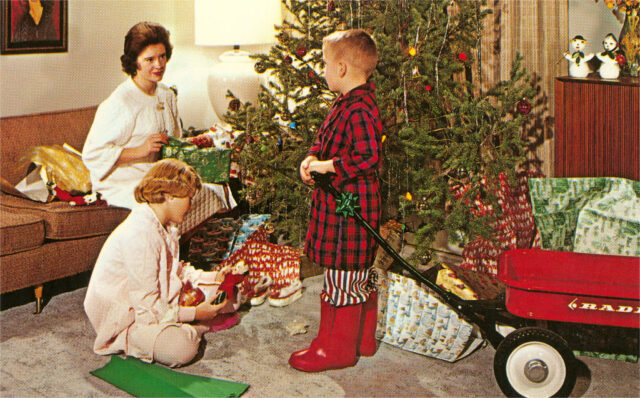
When it comes to Christmas trees, bigger is always better! Ever since the commercialization of the holiday, those with the room have bought the largest available, with them often taking up most of the space in the living room.
Playing with their Christmas presents
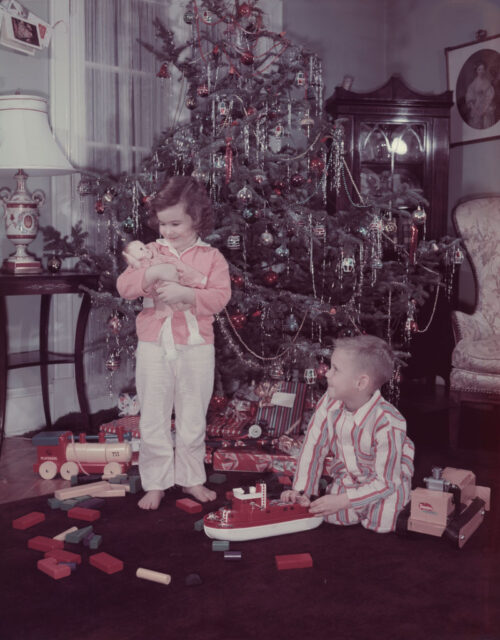
First, it was silvery tinsel, then it was individual strands of metal or plastic balls. These have always been much easier to put on and take off, but, if you’re asking us, they don’t have the same festive effect.
Decorating the living room for Christmas
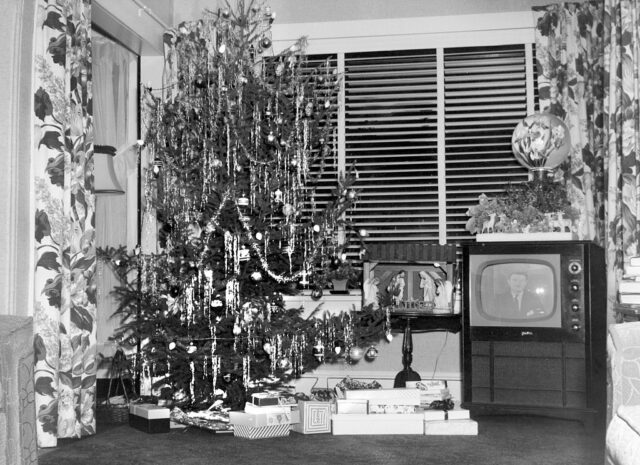
A classic Christmas scene from 1952, showing the era’s bulky television design and how the majority of families would decorate their trees. It leaves you feeling nostalgic for your childhood!
Watching the kids open their presents
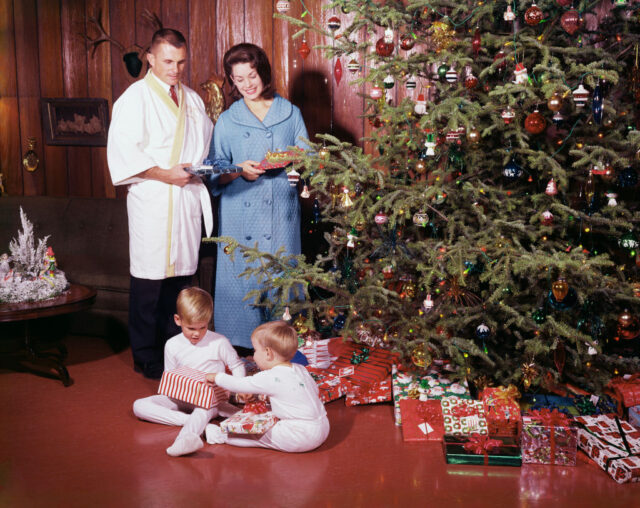
While some families prefer to go all out with their Christmas trees, others prefer a more simplified look featuring just lights and baubles. A much more contemporary look, but nonetheless stunning!
A snowy Christmas
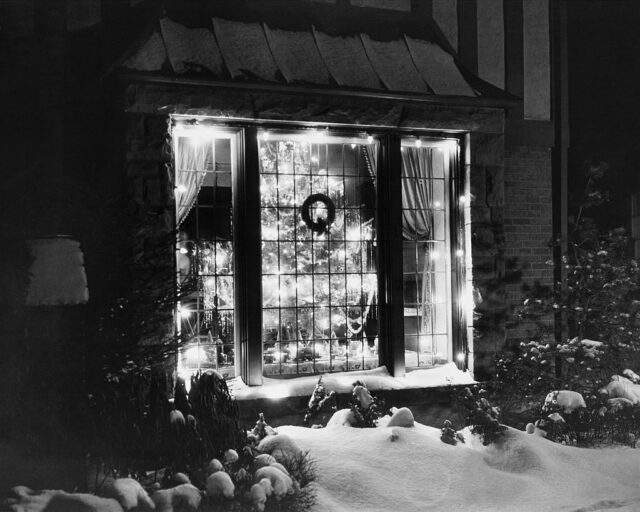
Now, this takes us back to our childhood! We miss when our parents would take us on a walk through the neighborhood to take in the outdoor Christmas decor and glimpse at how other families decorated their trees for the holidays.
Christmas morning in the 1970s
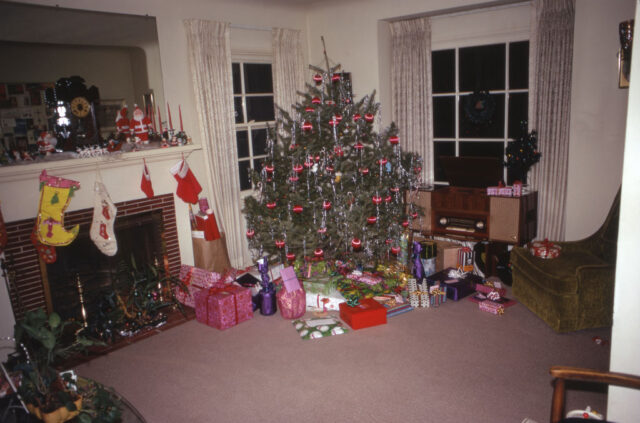
This photo could have been taken at our childhood home. The Christmas tree, the stockings hanging over the fireplace, the olive green chair… Wait, was this our house?
Celebrating Christmas with the Reagans
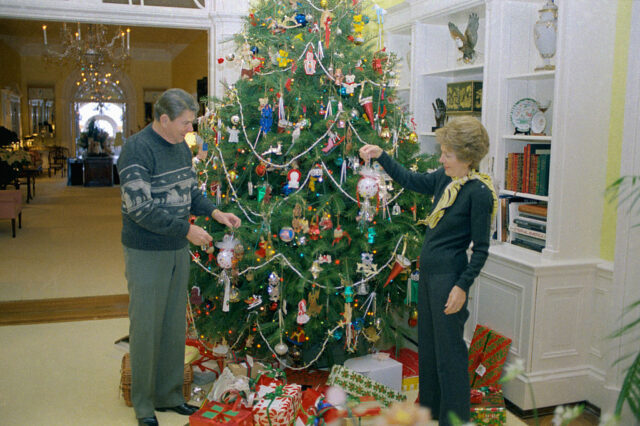
Christmas is always a festive time at the White House, as shown by this photo of Ronald and Nancy Reagan decorating a tree for the holidays. It’s always interesting to see high-profile figures acting like the rest of us!
Sneaking downstairs to play with presents
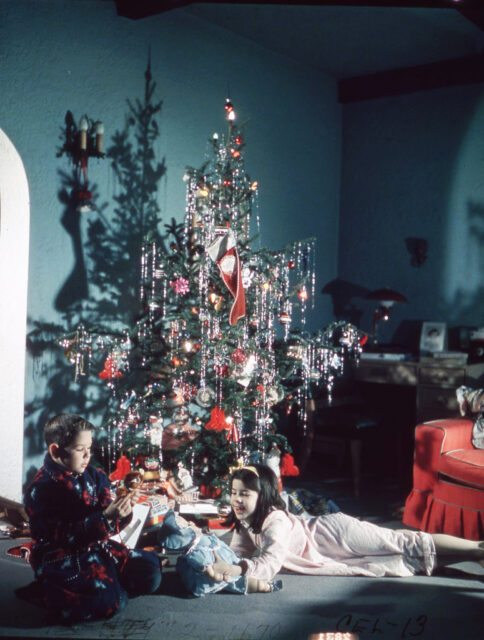
You better watch out, you better not cry… You better not sneak out of bed in the middle of the night to open your presents, lest you interrupt Santa Claus.
Making a dark and dreary space festive
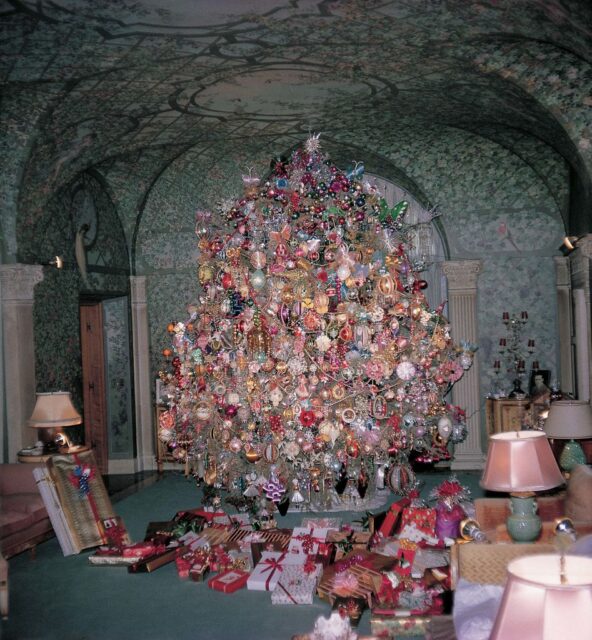
This is one of the more over-the-top Christmas trees we’ve seen – and we love it! We’ve always thought that the way someone decorates their tree offers an insight into their personality and, by the looks of it, this family had a lot of it.
Playing with their Christmas presents
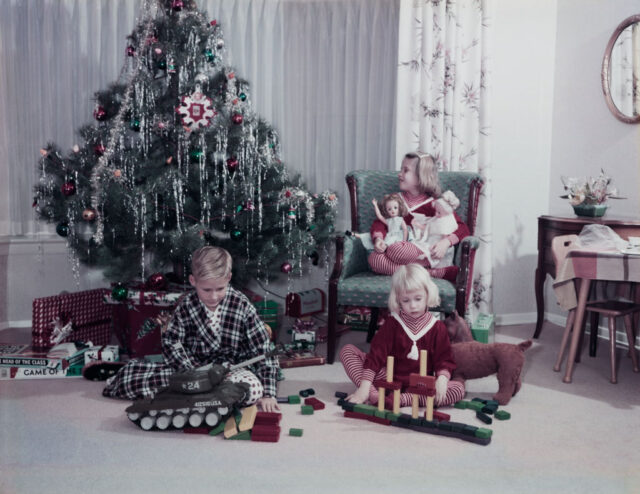
What was your favorite Christmas present? We had a few, but, if we had to choose a specific one, we’d have to go with Barbie. Those dolls have always been a classic, and we look forward to our own children opening their own each holiday.
Christmas morning
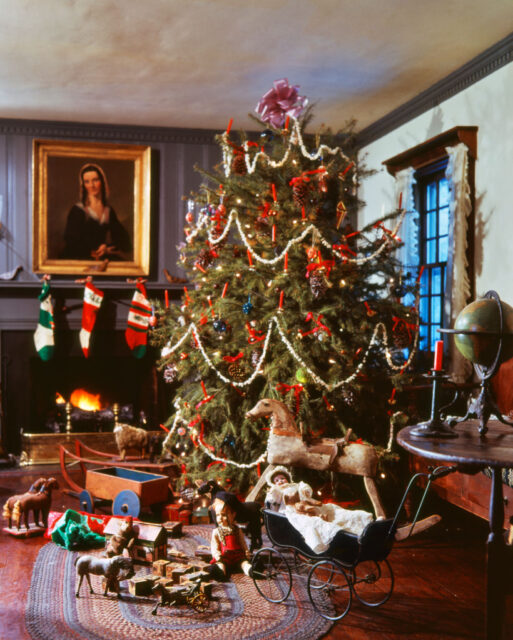
A bow on top of the Christmas tree, instead of the classic star or angel? A unique choice, but one we can definitely get behind! Maybe we’ll give it a try this holiday season.
Thanking their mom for the Christmas presents
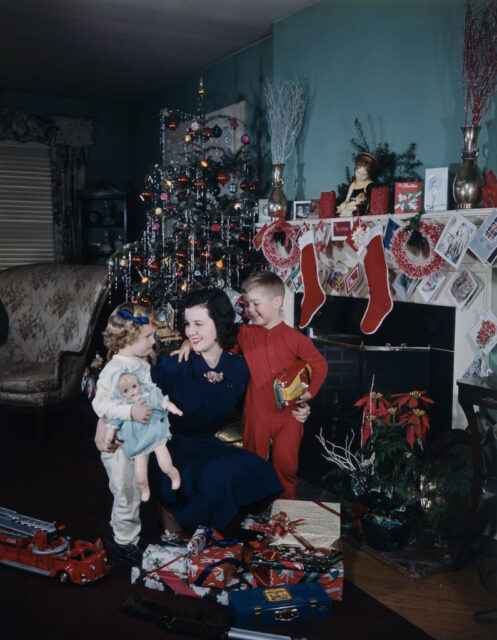
More from us: Some Weird Versions of ‘A Christmas Carol’ You Likely Haven’t Seen
While Santa Claus is the one who delivers most of the presents children receive on Christmas, the rest are bought by parents, and it’s important that they’re thanked for their generosity!
